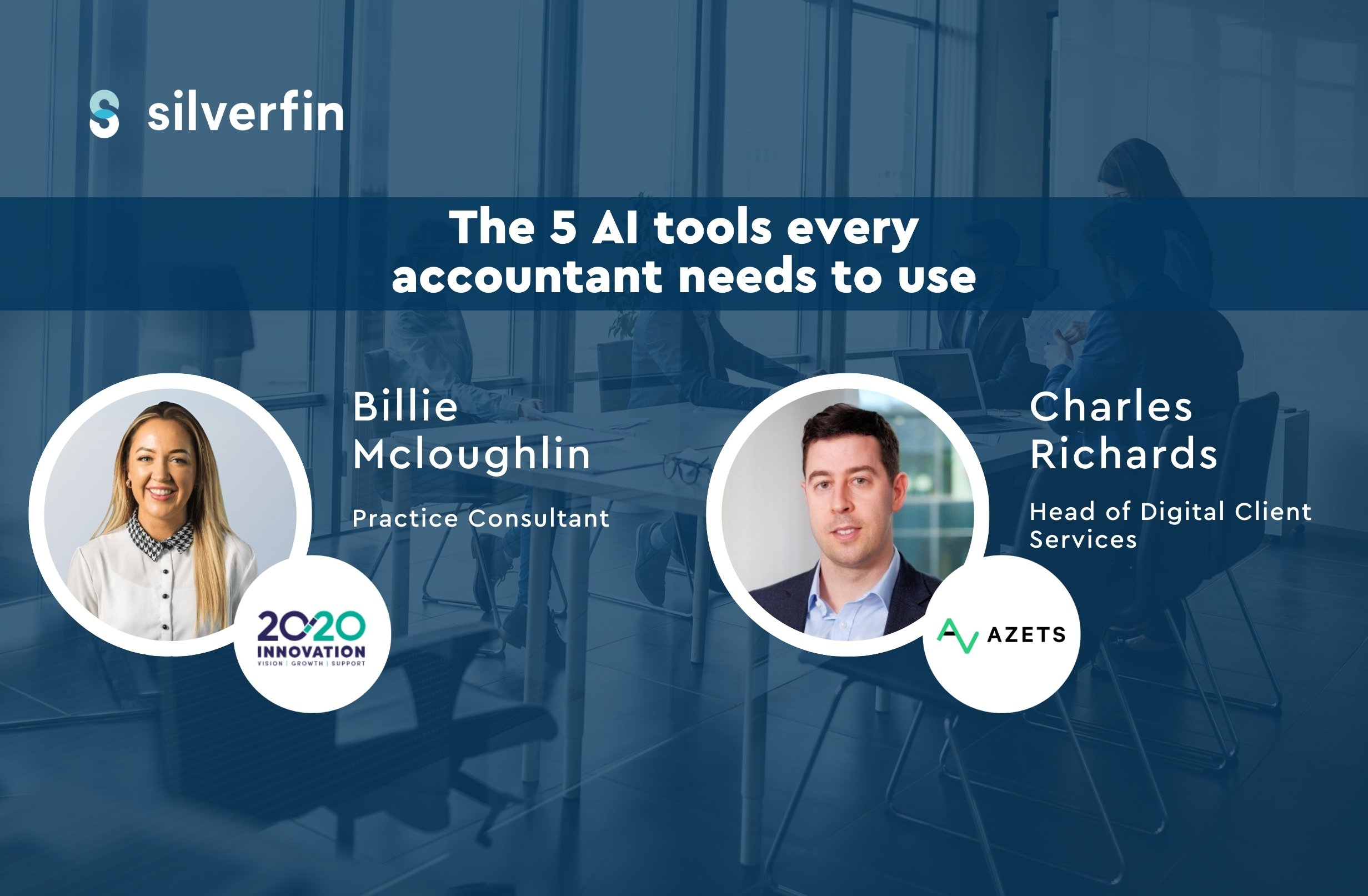Artificial intelligence (AI) is reshaping industries, and accounting is no exception. But should accountants be worried? In the latest episode of Silver Linings, Billie McLoughlin, practice consultant at 2020 Innovation and tech and AI lead, joins us to unpack the reality of AI in accounting. From the biggest misconceptions to practical ways accountants can adopt AI, here’s what we learned.

Should accountants be afraid of AI?
There’s a lot of fear around AI taking jobs, but according to Billie, this narrative is misleading. The real risk isn’t AI replacing accountants—it’s accountants not adapting to AI.
“If I were 17 and reading that by the time I qualified, there would be no job for me, I’d probably look at another industry,” Billie says. The concern isn’t job loss, but how firms embrace AI to attract future talent and improve the profession.
AI isn’t eliminating roles but changing them, creating opportunities for accountants to add more value to clients through advisory services and automation.
Will AI create a two-tier accounting industry?
A natural divide is emerging between firms that embrace AI and those that resist it – much like the shift to cloud accounting.
Some firms are still using spreadsheets and calculators for basic tasks, while others are leveraging automation to streamline operations. This gap will only widen, Billie warns. “AI isn’t a magic fix – you need to get the basics right first. If your practice isn’t cloud-based yet, AI won’t be the game-changer you hope for.”
A simple way to get started with AI
For firms unsure where to begin, AI-powered note-taking tools are a great entry point. Tools like Fireflies and Gong join meetings, transcribe discussions, summarise key takeaways, and even suggest follow-up actions.
These tools aren’t just about efficiency, they improve collaboration. “Partners often take handwritten notes in hieroglyphics,” Billie jokes. “AI note-takers bridge the gap, ensuring team members have clear, structured information to act on.”
Choosing the right AI tools
With every software vendor now claiming to use AI, how do accountants cut through the noise? Billie’s advice: don’t get distracted by the AI label, focus on the problem you’re trying to solve.
Key questions to ask vendors:
- How does this tool solve my specific problem?
- How is its AI different from automation or standard software?
- What happens when AI reaches its limit—does it provide a clear response or “hallucinate” an answer?
Practical AI use cases in accounting
AI’s impact stretches across all areas of accounting, from marketing to compliance:
• Marketing & content creation – AI can help draft social posts, blogs, and FAQs based on common client questions
• Client onboarding – AI-generated avatars can create personalised welcome videos without requiring constant re-recording
• Bookkeeping – AI-powered chatbots in accounting software can answer queries and automate data categorisation
• Tax & compliance – AI can simplify tax regulations by translating complex legislation into layman’s terms
• Advisory services – Accountants can run “what-if” financial scenarios in AI tools to model future outcomes for clients
The security and ethics of AI
Security and ethical concerns are valid but manageable. Billie emphasises:
• Use paid AI tools – free versions often use your data for training.
• Stick to enterprise-grade AI within platforms like Microsoft, which offers added security.
• Implement an AI policy in your firm to guide employees on safe and ethical usage.
Final advice: Stay informed, not overwhelmed
AI is moving fast, but accountants don’t need to chase every new tool. Billie’s advice? “Stay informed but don’t get consumed. Always start with the problem you want to solve – don’t adopt AI just for the sake of it.”
Want to hear the full conversation? Listen to the latest Silver Linings podcast episode with Billie McLoughlin.

















